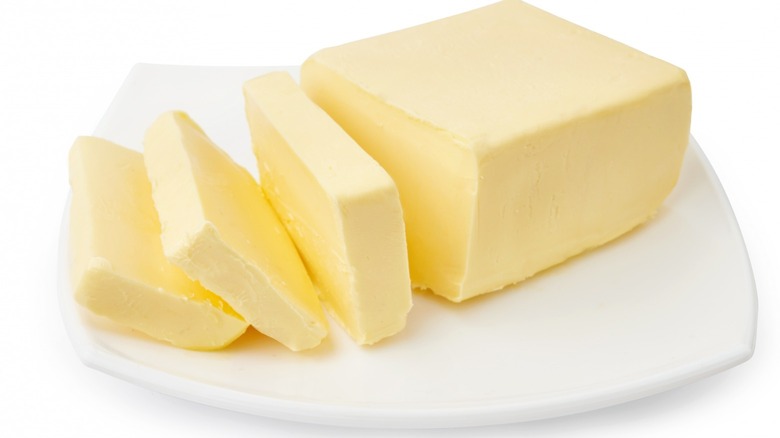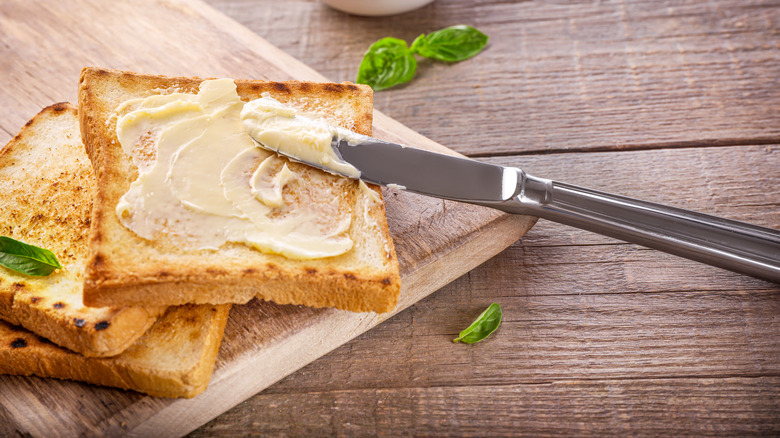The Real Reason You Should Never Buy Fake Butter Substitutes
If you're a lover of butter, you may have considered switching to a substitute such as I Can't Believe It's Not Butter, Smart Balance, or Benecol. The University of Virginia notes that, in recent years, these spreads have gained popularity because of their lighter fat and oil content and the inclusion of such additives as yogurt or plant stanols that purportedly make the product healthier.
However, switching from butter to margarine or a substitute is not as black and white as you might think. According to Harvard Health Publishing, the older kinds of margarine were even worse for you than butter due to their high levels of trans fats, which could raise a person's risk for heart disease. Today, some butter substitutes are lower in saturated fats and tend to be free of trans fats, but remain high in calories. In addition, many of these butter substitutes are made with seed or vegetable oils, which could have harmful effects on your health, including an increased risk of heart disease, arthritis, and bowel inflammation (via Healthline).
Healthy alternatives can be less healthy than you think
In addition to the fat and caloric content, one of the biggest red flags when it comes to butter substitutes is the presence of fillers, food coloring, and gums (via Cleveland Clinic). Additionally, plant-based spreads can be even worse for you than regular butter (via The Beet). For example, coconut oil, found in many of these spreads, contains 50 percent more saturated fat than butter.
Given the high saturated fat content of regular butter, and the potential risks associated with certain substitutes, there are some healthy alternatives that you can consider, according to Medical News Today. These include a form of clarified butter called ghee, which can be used in cooking and baking, or olive oil, which can be helpful in lowering cholesterol and reducing the risk of heart disease. Other alternative spreads include avocado, which is high in monounsaturated fat and has cholesterol-lowering properties. It is also suitable for controlling blood sugar. While it may be tempting to seek out a substitute for butter, the associated health risks, and a wide array of viable alternatives, means that you may be better off passing them up altogether.

